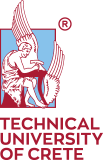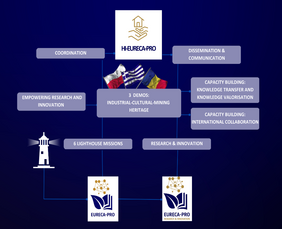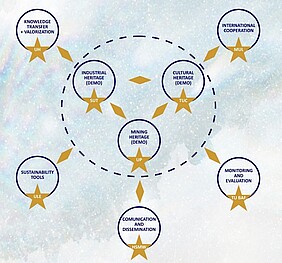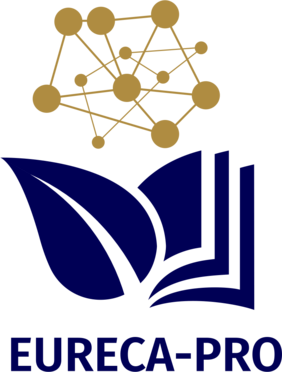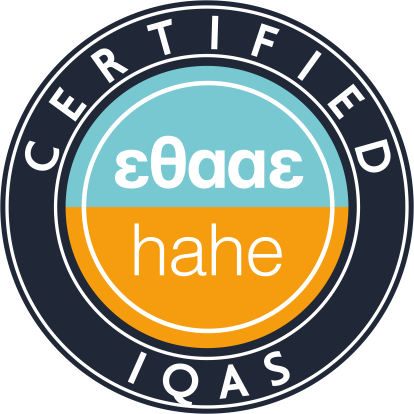The HI-EURECA-PRO project was selected among the 12 winning projects after the evaluation by the European Commission of 61 proposals submitted by about 400 European Universities. The HI-EURECA-PRO proposal was submitted under the auspices of the EURECA-PRO (European University on Responsible Consumption and Production) Alliance.
The research proposal was submitted by the team of the Renewable and Sustainable Energy Systems Laboratory of the School of Chemical and Environmental Engineering at the Technical University of Crete (TUC), led by Professor Theocharis Tsoutsos, Director of the laboratory, who also serves as the PI of the project. Apart from TUC (Greece), 7 other European universities participate in the project, all partners of the EURECA-PRO Alliance: Montanuniversität Leoben (Austria), Universitatea din Petroşani (Romania), Politechnika Śląska (Poland), TU Bergakademie Freiberg (Germany), Hochschule Mittweida (Germany), Universidad de León (Spain), Universiteit Hasselt (Belgium).
This project aims to investigate the potential of heritage-based innovation for sustainable economic and social development in rural and urban communities and to identify best practices for fostering heritage-based innovation across the region and beyond (in pan-European and international collaborations). HI-EURECA-PRO will develop specific measurable methods, tools and procedures for material sustainability in heritage.
The main goal of the HI-EURECA-PRO project is to reach research excellence based on the heritage of regions in Higher Education Institutes of three widening countries through targeted innovations supported by the EURECA-PRO Alliance partners. To implement the above general goal, industrial, cultural, and mining heritage demos are planned to become Demo pilots in the actions of the project.
Therefore, in accordance with the priorities and objectives of the call, the development of innovative methods, tools and processes for material sustainability in heritage will:
- Create a robust regional innovation ecosystem, including all parameters of the innovation quintuple helix: environmental, social, economic, political and academic.
- Introduce new and upskilled knowledge, which will be available to all interested parties.
- Contribute to new research careers in Higher Education with hands-on experience in involving the industry, the society and the government.
- Open new roads for collaboration between the Higher Education Institutes and the market sector in the testing and application of sustainable materials, tools and methods.
- Will support the knowledge creation and transfer in the green and digital transition by upskilling the educational tools and methods in the green transition era.





